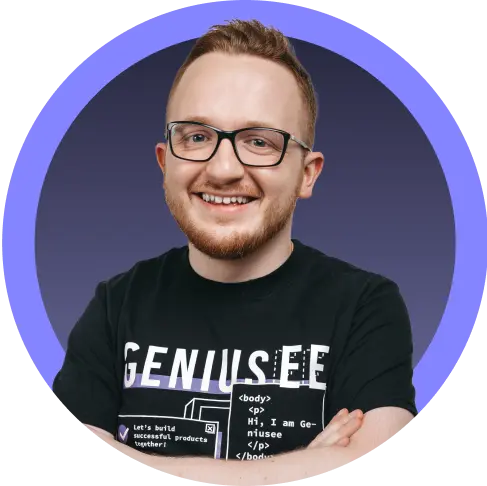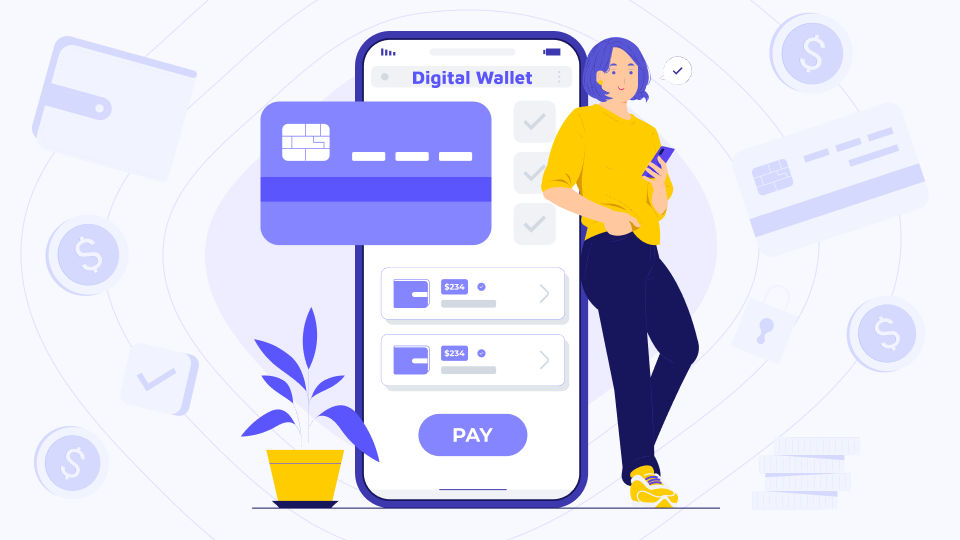In this article, we'll talk about what you shouldn’t do in order to develop effectively from the very beginning of the Android developer journey.
8 Common Mistakes Junior Android Developers Make
The demand for Android developers has been outstripping the supply for a long time. And this situation will remain for at least several more years. If you are thinking about a job that is relevant both in a crisis and in a normal economic environment, then the career of an Android developer is just what you need and now is the time to master it.
Over the past five years, we have managed to take quite a few knocks and make enough mistakes - we will try to save you from them in this article. We will tell you where beginners go wrong and how to avoid it.
Common Mistake #1 “I'll figure it out on my own"
If you think that you are able to put all educational material into right pigeonholes yourself and delve into any code, that's great. You are probably ready to spend 24 hours trying to find a bug or a working solution, surf the Internet and try everything that comes to mind until the code works. This is commendable perseverance, but it is better to apply it in such a way as to gain new knowledge, and not endlessly seek solutions that have already been found a million times before you.
In most cases, beginners simply do not have enough experience to understand which of the solutions found on the Internet is optimal and why. Ask questions about this in chats and forums, consult with fellow programmers and your mentor. Trust us, you will save a lot of time that you can use for further training. With an experienced mentor, you grow ten times faster than on your own.
Common Mistake #2 "Fear Of Missing Out"

There is a concept popular in the programming environment: Fear Of Missing Out (FoMo), or "fear of missing something important." Android is a huge system. You will not be able to study it thoroughly even in five years. First, the platform is constantly evolving and changing. Second, the more you learn, the more you see adjacent areas that you don't understand yet.
It is completely normal for a beginner developer not to understand fully even some basic things. We have employees who have been programming all their lives, and even they do not know everything - they can also be surprised. Your task is not to study the area completely, but to find out what will help you in your work right now. And consistently expand your knowledge through practice.
Common Mistake #3 "No design needed"
"I'm a developer, I need to code well, and don’t ask me what the interface and navigation will look like, ask the designers." Familiar train of thought? The more you understand Material Design (Android App Design Guide), the better you know the platform's capabilities as a developer - and the clearer it is for you how to make a good app. You don't need to be able to draw icons beautifully (there are many resources for that), but understanding the principles is important.
Common Mistake #4 "I use a mouse - and it's very convenient"

Take our word for it : without a mouse, you write code much faster. That is, you are more productive. Using a mouse while programming, you constantly move your hand from it to the keyboard and back, and also take the time to adapt to these two devices each time. In any development environment, there are keyboard shortcuts for everything you need, and the most convenient shortcuts are reserved for the most frequent operations. When you stop using your mouse while programming, you will be truly productive.
Common Mistake #5 "To embrace the immensity is easy!"
So, you want to write your first application, you've been thinking about it for a long time. And the time has come! Your application should have a chat, video viewing, an audio player, maps with navigation (they will always come in handy), and notes (that goes without saying).
And now just wait a minute! Such an application will not only require efforts from you throughout the year (or even more), but over time it will turn into a "Frankenstein's monster." Because you will not only write the application, but also learn from it, constantly rewrite, optimize and improve it. And after six months, from the height of the experience gained, you generally want to redo everything from scratch.
Start small. Write a simple Pomodoro timer that's perfect for you, and make it work properly when you rotate the screen. Believe us, many discoveries await you at this stage. Put it on Google Play, add payment and advertising (that’s even more new stuff!), Go through all the stages from the beginning of development to its completion and application support.
Then write a simple chat app just for text. Upload it. Add photo sharing and then something else. Next, make a simple application for listening to music ... Got the idea? That way, you have completed projects, and in a year and a half you'll be ready to start your ideal application.
Common Mistake #6 "The idea of a new function has come - start writing!"
Before implementing a new feature, look for information about it. Most likely, something similar has already been written - and all possible errors have been taken into account there. So don't reinvent the wheel. You can write functions yourself, but it's always better to know that there is already working code at hand. Sometimes it saves a lot of time and hassle.
For example, Android Arsenal or GitHub contain almost every Android library ever written. And their code is freely available. Check it out.
Bonus tip: choose your libraries wisely. Check the library's rating. See if its creator still has popular works. And check the discussions and reviews. Not all libraries are well written.
Common Mistake #7 "I don't have time to parse someone else's code"

Programmers (and Android developers as well) spend more time reading someone else's code than writing their own. Even your own code written three months ago will seem foreign to you. Grab a coffee, sit down, open up some good code examples and go through them for an hour or so. If you do this regularly, you will not only learn to read other people's code fluently (which is very important), but you will also absorb the best practices. After all, one of the great things about Android is the complete openness of the platform.
Common Mistake #8 "If I make a lot of money, I'll buy a powerful PC"

Buy it now! Eventually, it will cost you less and will pay off quickly. Most of the day, you work at the computer. This is your main and only tool. On a weak PC, the project takes many times longer, the environment works slower, an open browser slows down the entire system ... All this affects not only your productivity, when minutes of waiting add up to weeks during the year. It also affects the overall return on work, the emotional state - you just get less pleasure from programming than you could. And this is more important than anything else put together.
Yes, not everyone has the opportunity to buy a cool PC right away. But keep this thought in mind and understand all the advantages of a powerful computer over a weak one.
In conclusion, we will move away from the format of bad advice - we will give useful advice directly. Start giving away the knowledge you received. There is nothing better for understanding a topic than trying to explain it to someone. Write to the blog, speak at meetups, teach. You will immediately feel how much more rewarding it is to retell the article to someone than just read it. Who knows, maybe you will like it and become a cool teacher ;)





















